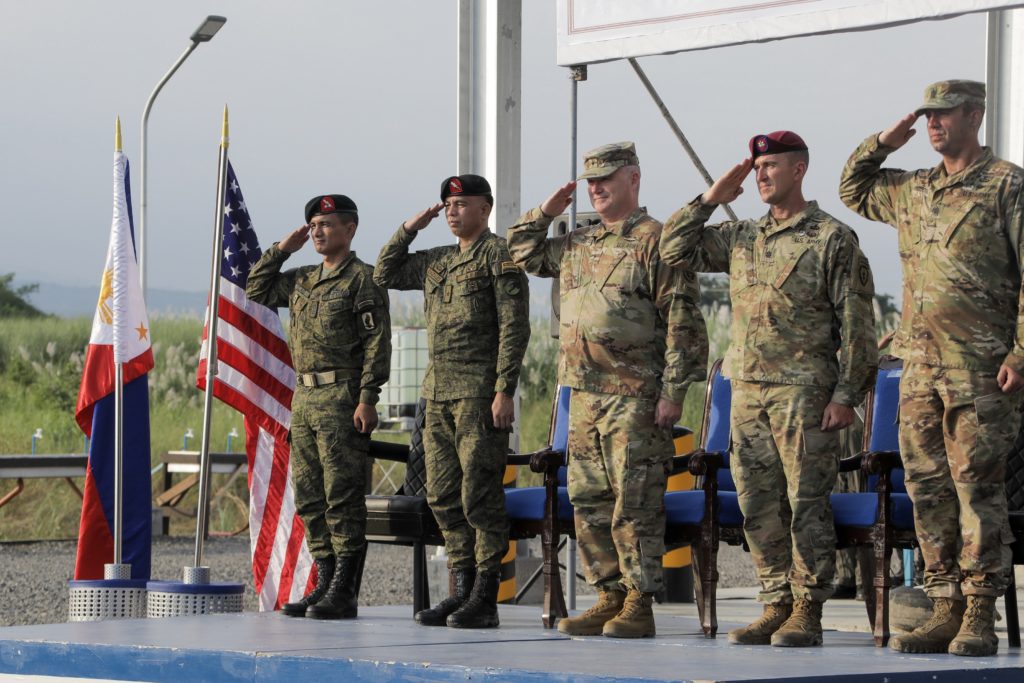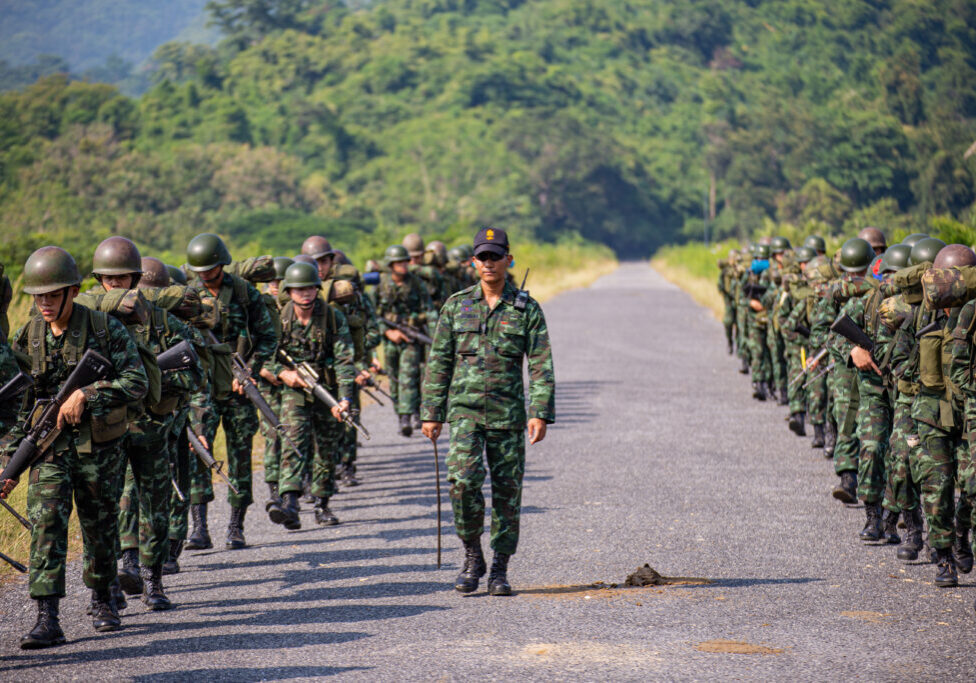Australia/Israel Review
Asia Watch: Glass half-full, half-empty
Sep 7, 2020 | Michael Shannon

The Philippines Armed Forces has been bolstered by advice, equipment and financial assistance from the United States for decades in its efforts to subdue violent Islamist militants in the archipelago nation’s southern islands.
The current iteration of this cooperative effort has been known as Operation Pacific Eagle – Philippines (OPE-P), launched in September 2017, when Philippine government forces were battling pro-IS fighters who had taken over the southern city of Marawi. The US deployed military advisers and drones to help the Philippines retake the city, kill the top leaders of the militant siege and flush out their forces a month later.
But nearly three years later, the two forces have differing assessments of the success of their joint mission.
The latest report to the US Congress from the Pentagon said the current counter-terror offensive had not made any significant inroads against Islamic State-aligned extremist groups.
“[T]here has been little change in the capabilities, size, financing, and operations of ISIS-EA [East Asia],” said Sean W. O’Donnell, the US Defence Department’s acting inspector general, in the quarterly report on the US military aid program to Manila.
“In general, efforts to reduce extremism in the Philippines do not appear to have made a substantial difference since the launch of OPE-P. ISIS-EA and the other violent extremist groups in the Philippines that either coordinate with or share members with ISIS, have remained about the same size and strength for the last few years,” O’Donnell said, noting that the militant groups have operated in the same region for decades and that “little progress has been made” in improving the economic, social, and political conditions there.
The Philippines’ military chief and other generals responded with a more upbeat assessment. Armed forces head Gen. Gilbert Gapay said, “WestMinCom [Western Mindanao Command] has accomplished so much as far as degrading. Maybe we have not yet defeated [them] but we have degraded their capabilities, especially the Abu Sayyaf.”
Government forces have depleted the Abu Sayyaf Group ranks by up to 70% since last year, Gapay said. He did not give estimates of the group’s current strength, but military sources place its troop levels at between 300 and 500 fighters.
Gapay made his comments days after a senior Abu Sayyaf commander, Abduljihad “Indang” Susukan – wanted for at least 23 cases of murder and five kidnapping cases, including of Westerners who were executed by their Abu Sayyaf captors – was taken into custody. He voluntarily surrendered to Philippine authorities after being wounded in fighting on Aug. 13.
Susukan was alleged to be a contemporary of Zulkifli bin Hir, the Malaysian militant and bomb-maker also known as Marwan, who was killed by Philippine police commandos during a raid in January 2015. Marwan was a primary suspect in the 2002 Bali bombings.
Susukan also became a lieutenant to Hatib Hajan Sawadjaan, an Abu Sayyaf militant who took over the command of the Philippine branch of Islamic State after Isnilon Hapilon was killed at the end of the Marawi siege in October 2017. Sawadjaan’s group was also blamed for twin bomb blasts that killed 23 people at a church in Jolo, the capital of Sulu province, in January 2019.
With the Abu Sayyaf under pressure from security forces and reportedly short of cash, experts predict that an increase in kidnappings is likely. Five Indonesians, including a minor, are currently being held by the group, according to the Indonesian Foreign Ministry, but there have been no new kidnappings since January, according to authorities.
Deka Anwar, a researcher at the Jakarta-based Institute for Policy Analysis of Conflict (IPAC), told a recent online forum that there was a lull in kidnappings in 2016 and 2017 following large-scale operations by the Philippine military against the militants and a series of money transfers from Islamic State to Abu Sayyaf.
But with those funds largely depleted, the Abu Sayyaf is increasingly targeting Indonesian shipping crews because ransom payments have been secured for their release, he said, adding that about 93% of coal exports from Indonesia to the Philippines pass through Mindanao waters. The slow-moving boats allow Abu Sayyaf militants to abduct sailors.
Ali Fauzi, a former Moro Islamic Liberation Front (MILF) member and executive director of the Circle of Peace Foundation, has a different take, telling BenarNews that the Abu Sayyaf’s piracy has deep roots.
“Their ancestors in the Sulu Kingdom were notorious for their piracy tradition,” Ali said. “They need money, not only for their struggle but to support poor people. They are considered Robin Hoods. They and their community need each other. If they are pursued by the Philippine authorities, they can blend in with the people and the people will protect them,” he said.
Tags: Asia, Philippines






